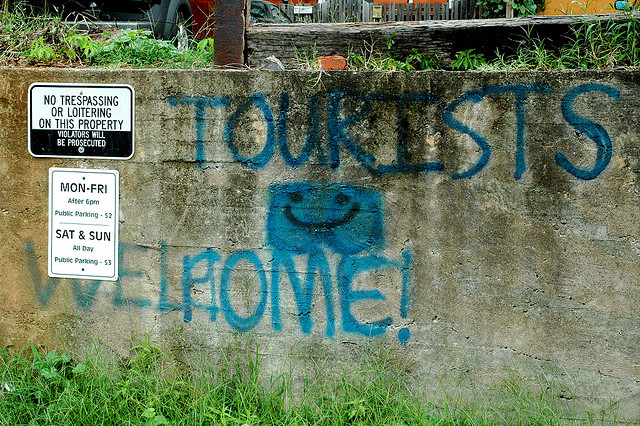
In the debate surrounding regulation of the burgeoning sharing economy, ride-sharing services like Uber seem to dominate the discussion. However, several other growing businesses in this sector are under attack as well.
Airbnb, an online sharing service where people can list their home or apartment to host potential short- or long-term renters, is currently under attack in Asheville, North Carolina. The city recently added an employee exclusively dedicated to enforcing a short-term rental ban, those renting for a period of less than a month, and increased the penalty for short-term renters from $100 per night to $500 per night. Both the Mayor Esther Manheimer and Vice Mayor Marc Hunt were among the 5-2 majority that voted to increase these fines at a packed City Council meeting on Tuesday.
Manheimer and Hunt’s attack on innovation seems counterintuitive given Asheville’s reputation as a tourist haven. Airbnb, as well as other home-sharing services such as HomeAway and VRBO, have skyrocketed in popularity in direct response to a demand for these kinds of short-term rentals by visitors flocking to cities of all sizes—particularly tourist destinations like Asheville.
According to the Asheville Convention and Visitors Bureau (CVB) website, in 2014 alone Buncombe County hosted 9.8 million visitors, 3.3 million of which were overnight guests. Tourism is the third largest industry in the area, and visitors spend an average of $4.7 million in the city every day. In total, tourists generated $2.6 billion in economic impact by spending $1.7 billion at businesses that support nearly 25,000 jobs. The state and local tax revenue generated by the tourists’ economic investment saves each Asheville household $1,232. Calling the industry a “significant driver” of the city’s economy, the CVB projects that without tourism the unemployment rate would be a staggering 15.9 percent.
Furthermore, local online travel company sales quadrupled from May to June of this year according to the county tax department, which is when Airbnb began reporting its sales numbers to the department. The overall hotel and travel business only went up 8 percent during this time, so the boom cannot be attributed to a seasonal tourism boost.
Given the significant economic impact of Asheville’s thriving tourism industry, and Airbnb’s service being the clear number one choice for those visitors, it is a mystery why the City Council seems adamant about stifling short-term rentals.
During Tuesday’s meeting, the Mayor gave a weak argument for the increased fine that centered on the desire to resist potential changes in the community that she alleged would result from allowing short-term rentals.
“If we get it wrong it could be like when you rent a house at the beach,” she said. “Every single house is rental. Nobody knows each other, everybody is making a mint. But what is it? It’s just a resort community. It’s not a community. It’s not a place you raise children.”
Not only is performing this type of political engineering not a part of the Mayor’s job description, the facts do not support her argument. Buncombe County has benefitted from increasing in-migration over the last 30 years. The area gained over 26,000 new residents in that time period. While tourism offers Asheville significant economic support, the data show that tourists are not causing a deterioration of the “community” like Mayor Manheimer claims.
The city’s solution to punitively prevent residents and visitors from participating in short-term rental contracts is not the appropriate response to their fears about community development. Rather, the city’s leaders should be encouraging the growth of these businesses that complement their tourism industry. The Asheville City Council would best serve its residents by revisiting the issue free from unfounded economic logic.

